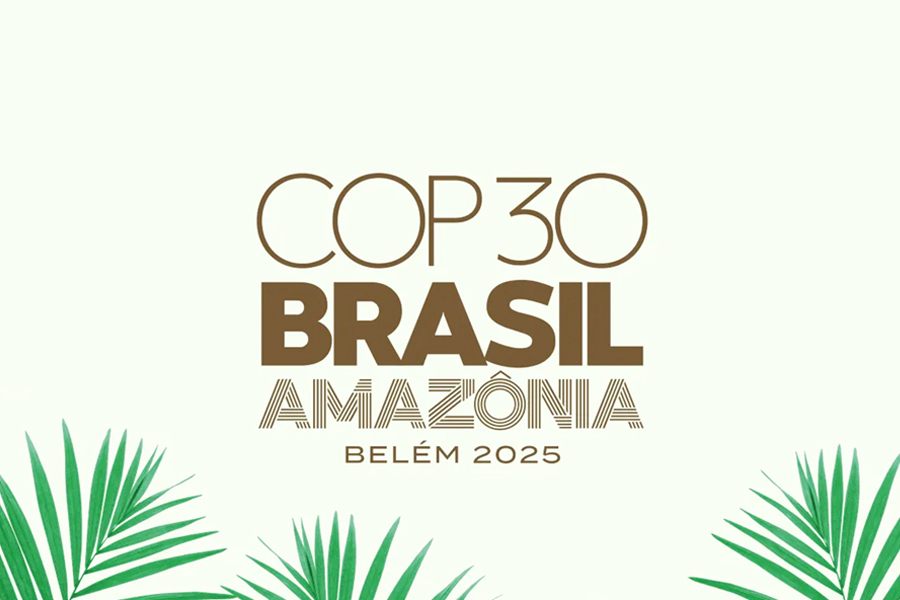
Published :
Updated :

As delegates began to gather in Belém, deep in the heart of the Brazilian Amazon, for the COP30 climate summit, reports published in the Global Carbon Budget landed like a thunderclap-reminding the world that rhetoric has far outpaced action. The report, released last week, warns that global fossil fuel emissions are on track to hit a record high in 2025, dashing hopes of keeping global warming below the critical threshold of 1.5°c above pre-industrial level.
According to the international team of scientists behind the study, emissions from oil, gas and coal are all set to rise, pushing total carbon dioxide emissions to an unprecedented 38.1 billion tonnes in 2025-1.1 per cent higher than the previous year. This relentless upward trajectory comes despite the largest-ever global expansion of renewable energy. The reason, the researchers note, is that the world's growing energy demand continues to outpace the transition to cleaner sources.
The findings of the study paint a grim picture. The report calculates that humanity has just 170 billion tonnes of CO? left to emit before surpassing the carbon budget that would keep global warming under 1.5°c above pre-industrial levels-the target enshrined in the 2015 Paris Agreement. At the current rate of emissions, that allowance will be exhausted in merely four years. "That is impossible, essentially," said Pierre Friedlingstein of Britain's Exeter University, who led the study. The implication is stark, as he has been quoted as saying, "the world has missed its narrow window to limit warming to 1.5°c, and even holding it below 2°c-a weaker but still vital goal-will demand far deeper and faster cuts than any nation has so far committed to."
The sense of urgency is palpable at COP30, hosted for the first time in the Amazon, a region that symbolises both the planet's ecological richness and its vulnerability. The location is not incidental: the Amazon rainforest, often called the "lungs of the Earth," is under mounting pressure from deforestation, fires, and climate-induced droughts. Its health is inextricably linked to the global carbon cycle and scientists warn that continued degradation could 'tip it from being a carbon sink to a carbon source'-further accelerating warming.
Yet, amid the pressing need for collective action, the summit has been marked by notable absences. The United States, the world's second-largest emitter, is not participating, leaving a conspicuous void in global climate diplomacy. The absence underscores a recurring challenge in international climate negotiations: major emitters pledging ambitious targets but falling short on tangible delivery.
The report lays bare the gap between ambition and reality. Although renewable energy capacity-particularly solar and wind-has surged to record levels, global dependence on fossil fuels remains entrenched. Many developing nations, grappling with post-pandemic economic recovery and rising energy needs, continue to expand fossil-based power generation. Meanwhile, oil demand has rebounded strongly, driven by transportation and industrial sectors in both advanced and emerging economies.
"Collectively, the world is not delivering," lamented Glen Peters of the CICERO Centre for International Climate Research, one of the report's co-authors. His comment captures the underlying frustration among climate scientists who have watched decades of warnings translated into only incremental policy shifts.
The implications of inaction are no longer theoretical. With 2025 projected to be among the hottest years on record, the physical manifestations of climate change-extreme heatwaves, megafires, superstorms, and rising sea levels-are becoming more frequent and severer. For the millions living in vulnerable regions, particularly across the Global South, this trajectory threatens to undo decades of development and amplify humanitarian crises.
The political backdrop of COP30 is equally fraught. While the Paris Agreement succeeded in creating a framework for global cooperation, its voluntary Nationally Determined Contributions (NDCs) have proven insufficient. Few countries are on track to meet their own targets, let alone the collective global goal. Wealthier nations have also failed to fully deliver the long-promised $100 billion per year in climate finance to help poorer countries mitigate the impacts of climate change-a point of growing contention in international talks.
For Brazil, the host nation, COP30 is a chance to showcase renewed environmental leadership under President Luiz Inácio Lula da Silva, who has pledged to curb deforestation and restore the Amazon's ecological balance.
As the summit unfolds, the message from the scientific community is unequivocal: to have any hope of steering the planet away from catastrophic warming, global emissions must begin to decline not in the distant future, but within the next few years. That means phasing out coal, rapidly electrifying transport, scaling up carbon capture technologies, and rethinking patterns of consumption and growth that hinge on fossil energy.
The COP30 thus stands as both a warning and a test. It is a warning that humanity is perilously close to crossing the planet's vital temperature threshold, and a test of whether political leaders can muster the courage to transform that warning into action. If the world continues along its current path, the 1.5°c dream will soon be consigned to history-and with it, the promise of a stable, livable climate for generations to come.
wasiahmed.bd@gmail.com


 For all latest news, follow The Financial Express Google News channel.
For all latest news, follow The Financial Express Google News channel.